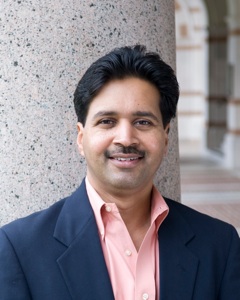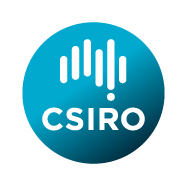Keynote presentation: The Role of OpenMP in Extreme Scale Software

Vivek Sarkar
E.D. Butcher Chair in Engineering
Rice University
E.D. Butcher Chair in Engineering
Rice University
9:45 Tuesday 17 September
University House
University House
It is widely recognized that computer systems in the next decade will
be qualitatively different from current and past computer systems.
Specifically, they will be built using homogeneous and heterogeneous
many-core processors with 100's of cores per chip, their performance
will be driven by parallelism (million-way parallelism just for a
departmental server), and constrained by energy and data movement.
They will also be subject to frequent faults and failures. Unlike
previous generations of hardware evolution, these Extreme Scale
systems will have a profound impact on future software. The software
challenges are further compounded by the need to support new workloads
and application domains that have traditionally not had to worry about
parallel computing in the past.
Recent changes in the OpenMP standard (including support for task parallelism, accelerators, SIMD parallelism, thread affinity, task cancellation) have begun addressing some of the anticipated requirements for Extreme Scale systems, but many challenges still remain. In general, a holistic redesign of the entire software stack is needed to address the programmability and performance requirements of Extreme Scale systems. This redesign will need to span programming models, languages, compilers, runtime systems, and system software. In this talk, we focus on the critical role played by the runtime system in enabling programmability in upper layers of the software stack, and in enabling performance in lower levels of hardware. Examples of extreme scale runtime primitives will be drawn from early experiences in the Habanero Multicore Software Research project [1] which targets a wide range of homogeneous and heterogeneous manycore processors, as well as the new Open Community Runtime (OCR) open source project [2]. Application experiences will be discussed from the medical imaging domain, based on research under way in the NSF Expeditions Center for Domain-Specific Computing (CDSC) [3]. These experiences will frame the discussion of challenges that will need to be addressed by OpenMP in the future.
Background material for this talk will be drawn in part from the DARPA Exascale Software Study report [4] led by the speaker. This talk will also draw from a recent (March 2013) study led by the speaker on Synergistic Challenges in Data-Intensive Science and Exascale Computing [5] for the US Department of Energy's Office of Science. We would like to acknowledge the contributions of all participants in both studies, as well as the contributions of all members of the Habanero, OCR, and CDSC projects.
References:
[1] Habanero Multicore Software Research project.
[2] Open Community Runtime (OCR) open source project.
[3] Center for Domain-Specific Computing (CDSC).
[4] DARPA Exascale Software Study report, September 2009.
[5] DOE report on Synergistic Challenges in Data-Intensive Science and Exascale Computing, March 2013.
Recent changes in the OpenMP standard (including support for task parallelism, accelerators, SIMD parallelism, thread affinity, task cancellation) have begun addressing some of the anticipated requirements for Extreme Scale systems, but many challenges still remain. In general, a holistic redesign of the entire software stack is needed to address the programmability and performance requirements of Extreme Scale systems. This redesign will need to span programming models, languages, compilers, runtime systems, and system software. In this talk, we focus on the critical role played by the runtime system in enabling programmability in upper layers of the software stack, and in enabling performance in lower levels of hardware. Examples of extreme scale runtime primitives will be drawn from early experiences in the Habanero Multicore Software Research project [1] which targets a wide range of homogeneous and heterogeneous manycore processors, as well as the new Open Community Runtime (OCR) open source project [2]. Application experiences will be discussed from the medical imaging domain, based on research under way in the NSF Expeditions Center for Domain-Specific Computing (CDSC) [3]. These experiences will frame the discussion of challenges that will need to be addressed by OpenMP in the future.
Background material for this talk will be drawn in part from the DARPA Exascale Software Study report [4] led by the speaker. This talk will also draw from a recent (March 2013) study led by the speaker on Synergistic Challenges in Data-Intensive Science and Exascale Computing [5] for the US Department of Energy's Office of Science. We would like to acknowledge the contributions of all participants in both studies, as well as the contributions of all members of the Habanero, OCR, and CDSC projects.
References:
[1] Habanero Multicore Software Research project.
[2] Open Community Runtime (OCR) open source project.
[3] Center for Domain-Specific Computing (CDSC).
[4] DARPA Exascale Software Study report, September 2009.
[5] DOE report on Synergistic Challenges in Data-Intensive Science and Exascale Computing, March 2013.





